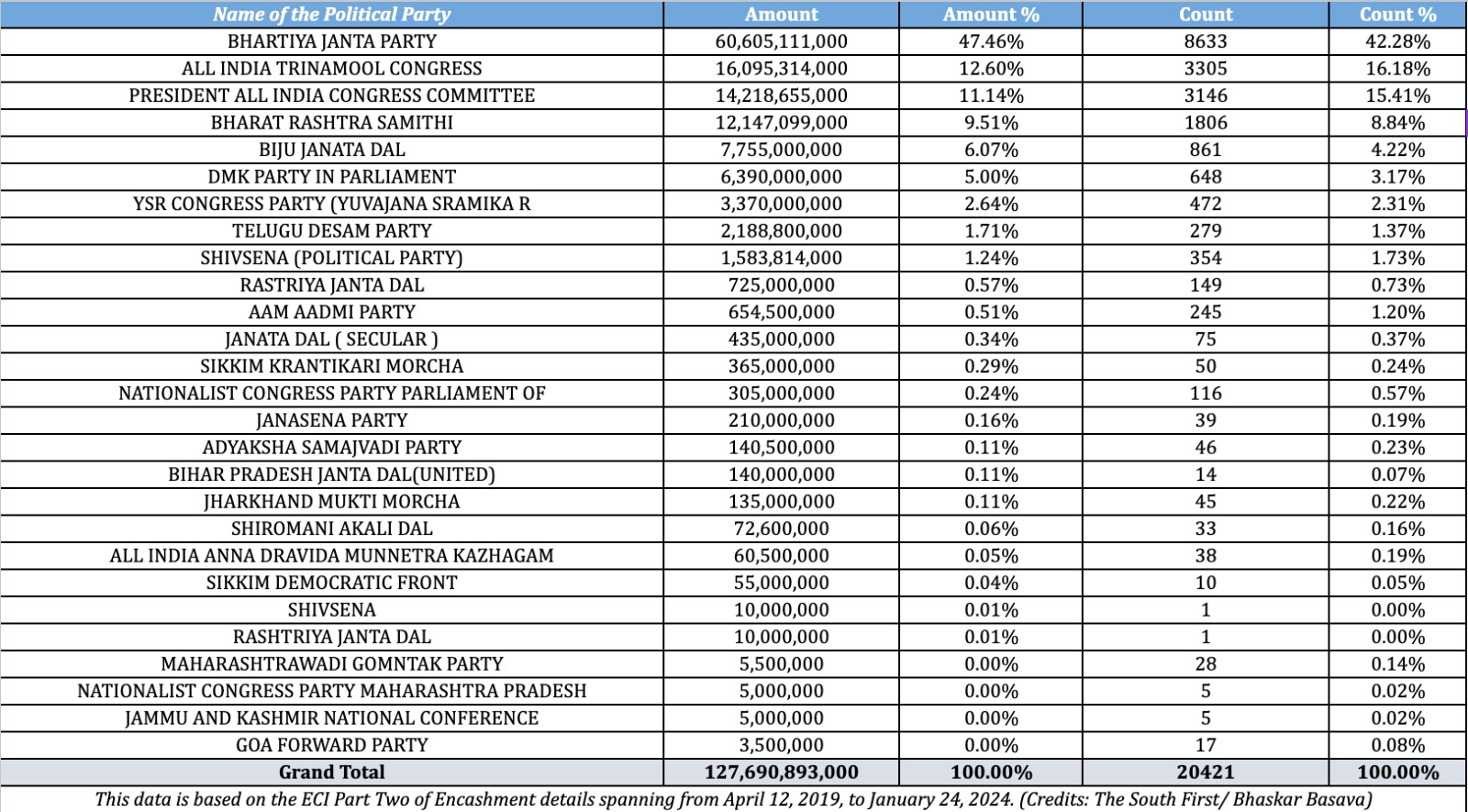The concept of electoral bonds was introduced with the aim of cleansing political funding by allowing individuals and corporations to donate money to political parties anonymously through bonds purchased from State Bank of India(SBI). Proponents argued that this would eliminate the use of black money in politics and ensure transparency. However, the reality has been far from the intended outcome.
Critics have raised serious concerns about the lack of transparency and accountability surrounding electoral bonds. One of the primary criticisms is that the scheme allows for unlimited and undisclosed donations to political parties, effectively opening the floodgates for potential misuse and corruption. Unlike traditional methods of political donations, where the donor’s identity is disclosed to the Election Commission of India, electoral bonds shield the identity of the donor, raising questions about the sources of political funding and the influence of vested interests on policymaking.
Moreover, the process of purchasing electoral bonds itself has come under scrutiny. The bonds are sold in denominations ranging from Rs. 1,000 to Rs. 1 crore, and individuals or corporations can buy them from select branches of authorized banks. However, details such as the amount and identity of the buyer remain confidential. This opacity has led to concerns that the system could be exploited by entities seeking to influence political parties in exchange for financial support.
In response to mounting pressure, the Supreme Court of India has taken cognizance of the matter and is currently hearing petitions challenging the constitutional validity of electoral bonds. The court has expressed concerns about the lack of transparency in political funding and its implications for democracy, signaling a potential turning point in the debate surrounding electoral bonds.
The Election Commission of India (ECI) has put up the full list of donors who purchased electoral bonds and the political parties that encashed them. The State Bank of India (SBI) had disclosed this information to the ECI on March 12. The Supreme Court had directed the ECI to host this information on its website by March 15.

The documents suggested that certain corporations had made substantial donations to the ruling party through electoral bonds, raising questions about quid pro quo arrangements and the influence of big business on government policies.










